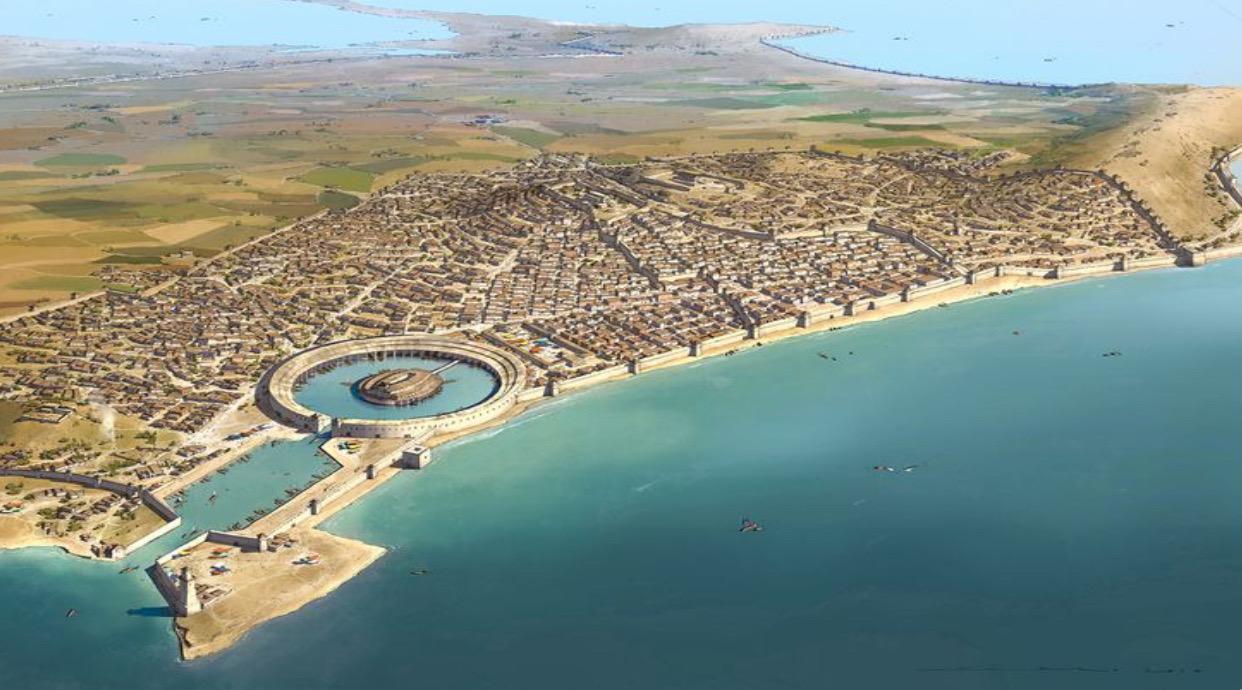Known primarily as the Punic Wars competitor of ancient Rome, Carthage was a trading city in North Africa that existed for over 500 years.
From its foundation by the semi-legendary Queen Dido in 814 B.C the Kingdom of Carthage became the dominant power in the western Mediterranean.
The Phoenician cities were highly dependent on both land and seaborne trade, and a number of major ports in the area were included in their cities.
The Phoenicians developed extensive colonial towns along the Mediterranean coasts, stretching from Iberia to the Black Sea, in order to provide a resting place for their merchant fleets, to maintain a Phoenician monopoly on the natural resource of an area, or to conduct trade alone.
In the 8th or 9th century B.C the city-state started its history. Originally a Phoenician settlement in what is now Tunisia, it later grew into a vast coastal kingdom dominating textile, gold, silver and copper trade.
During its height, its capital city had nearly half a million people and featured a protected harbor for 220 ships complete with docking bays.
The influence of Carthage eventually expanded from North Africa to Spain and parts of the Mediterranean, but its thirst for expansion led to increased friction with the burgeoning Roman Republic.
At the end of the 7th century BC, Carthage had been one of the western Mediterranean region’s main trading centres. Amid a long war with the Roman Empire, termed as the Punic Wars (264–146 BC).
Unlike Rome, Carthage had not concentrated on capturing neighboring lands until embarking on overseas endeavors.
At first, Carthage was ruled by kings, who were chosen by the Carthaginian senate and governed for a limited period of time. The election was held in Carthage, and at first the kings were military chiefs, city officials, and even religious functions were performed.
Kings were voted on merit, according to Aristotle, not by the people but by the senate, and the post was not hereditary. Yet the highest bidder could also buy the crown and military commands.
The ancient superpowers fought in the three bloody Punic Wars starting in 264 B.C., the last of which concluded in 146 B.C. Today, nearly everything that remains from the once-mighty empire is a series of ruins in Tunis City.
 The African History Truly African
The African History Truly African

